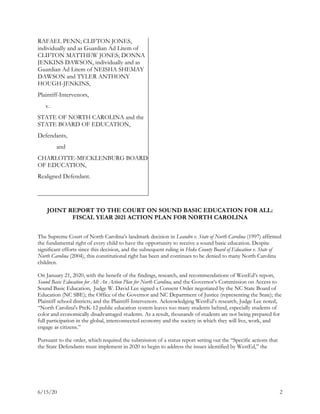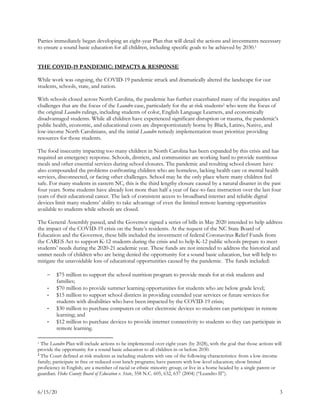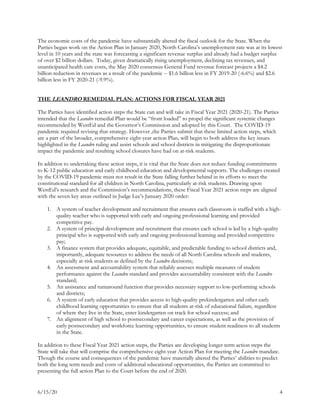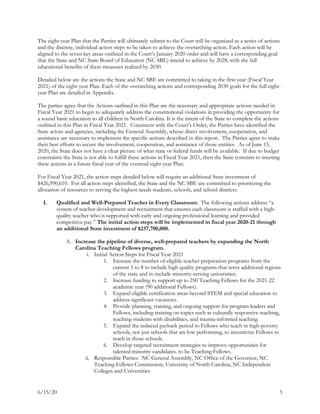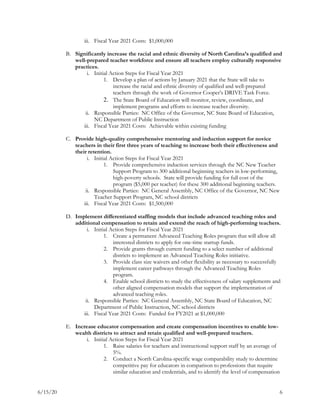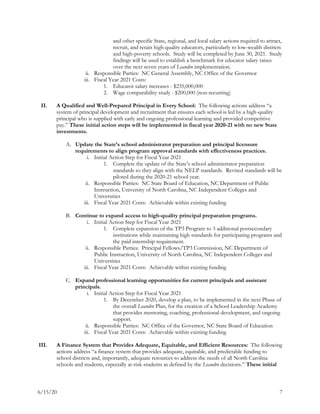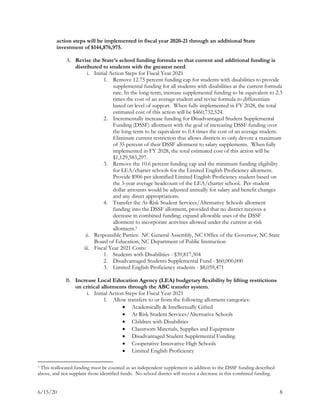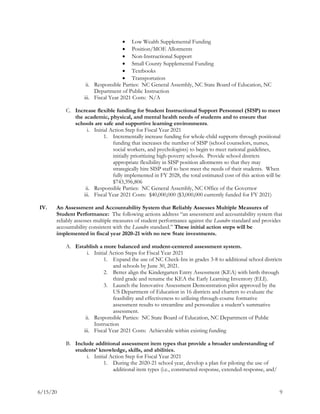This document provides a joint report to the court on the fiscal year 2021 action plan for North Carolina to address the state's failure to provide all students with the opportunity for a sound basic education, as mandated by previous court rulings. It summarizes the impacts of COVID-19 on educational inequities and outlines specific actions and budget allocations totaling $426.9 million for initiatives focused on increasing the diversity and support of teachers, improving principal recruitment and support, enhancing early childhood education, and aligning expectations between high school and postsecondary education.

